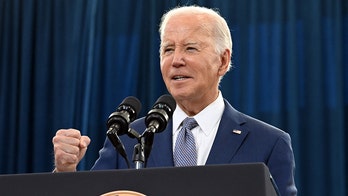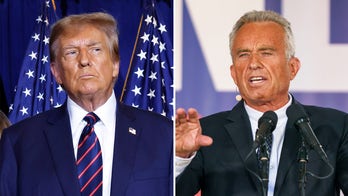Romney, Obama Ready for Final Debate
President Barack Obama and Republican nominee Mitt Romney debate foreign policy on Monday night.
– In the first two presidential debates of this election, the words Latin America have been uttered three times.
In the Vice Presidential debate on domestic and foreign policy? Zero.
Voters can find President Obama's and Gov. Mitt Romney's stances on Latin America at the bottom of their official campaign web sites, and in the final presidential debate held in Florida, the mecca of Latin America business in the United States, that's likely where the topic is going to stay. The bottom of the priority list. But should it be?
American Jobs
Each mention of the region in the debates thus far has come from Romney, directly before or after trade rhetoric regarding how he'll "crack down on China" as president.
In an election year about the economy, the rise of China will surely be a recurrent theme on Monday's foreign policy debate, but some experts say more time should be devoted to the United States' closest neighbors.
"Latin America is much more important than China," said Ted Piccone, senior research fellow from the Brookings Institute, speaking of trade with the region and its unique ties to American jobs.
Consider this, according to the independent research nonprofit, the Brookings Institute: We export twice as much to Mexico as to China. (233 billion vs 129 billion in 2011). We export more to Latin America than to all of Europe. We export more to Chile and Colombia than to Russia. One in six people in the United States are from Latin America. (This could include people of Spanish, Latin American, Puerto Rican, Cuban origin or lineage.)
More exports, more goods made in the U.S., equals more jobs.
More than 38 million American jobs depend on trade, according to the U.S. Chamber of Commerce. One in three manufacturing jobs depends on exports, and one in three acres on American farms is planted for consumers overseas. Latin America, particularly México, is a key part of the formula. Roughly six million American jobs depend on trade with México.
México is the largest Latin American trade partner with the U.S., accounting for 58 percent of trade in the region in 2009.
And it's not just fruits and vegetables in the region, but natural resources like petroleum, iron and steel, aluminum and organic chemicals.
Political Capital
So why isn't the region talked about in more specific terms? One theory has to do with two ominous words: Political Capital.
"The key issues of the region touch on very sensitive domestic political issues, guns, drugs, Cuba, immigration and to fix those problems the president has to spend political capital," Piccone, who worked in the Clinton administration for 8 years, said.
In other words: Solving complicated issues in the region requires complicated answers, and likely compromises on policies that could be unpopular with the American voter.
"That's why the conversation is left to a safe common ground on trade," Piccone said.
For Obama, Romney - It's Complicated
Critics say Obama has had his fair share of reasons to stay away from Latin America in his rhetoric.
"Obama’s policy with Venezuela, with all the other hostile countries, consisted of wooing them with his magnetic personality," said Otto Reich, Former Assistant Secretary of State for Western Hemisphere Affairs under President George W. Bush and United States Ambassador to Venezuela under President Ronald Reagan. "He really thought and said he was not afraid to sit down and talk with Castro, Chávez, Morales, Correa and that policy was a complete failure."
The President has emphasized the need to "restore America's standing in the world," with better relations and increased dialogue with countries in Latin America. Overall, his first summit of the America's was deemed a success, despite criticism over being too chum with Chávez. But his second summit of the Americas ended contentiously over whether or not Cuba, should be invited to the summit next year since it is not a democracy.
Still, Obama has had two accomplishments in the region: The President signed free trade agreements with Panama and Colombia in October 2011, and relaxed travel restrictions and remittances to Cuba. Those trade agreements, however, were originally negotiated under George W. Bush, and were held up in Congress because of pressure from labor unions and human rights activists.
On the other hand, Romney comes in with no foreign policy experience, and critics say he overemphasizes national security threats from the region.
"I'm not really sure what he sees in Latin America," said Terry Mccoy, Director of the Latin American Business Environment program at the University of Florida. "He sort of emphasizes the threat of Cuba and Venezuela, and that's not where the important issues are."
Mccoy told Fox News Latino the threat is overstated. "If the U.S. takes Venezuela as an enemy you can bet that Latin America would ally up against the U.S. Venezuela is a very important trading partner. Does Romney want to cut off relations the way we've done with Cuba?"
Romney does emphasize the want to "dramatically" increase trade with the region.
Though some experts find that hard to do, Latin America trade is already the fastest growing regional trading partner with the U.S.
Regardless of political affiliation, experts do agree more attention needs to be paid to the region because someone else is.
China has come in and taken a huge swab of the market. "Our share of Latin America market has declined from 55 percent to less than one third today," Piccone said. "China has made big inroads."
But not all of the reasons are our fault.
"We need to pay more attention," Reich said. "The world is just growing too fast."
Follow Bryan Llenas on Twitter @Bryan_Llenas.
Follow us on twitter.com/foxnewslatino
Like us at facebook.com/foxnewslatino





